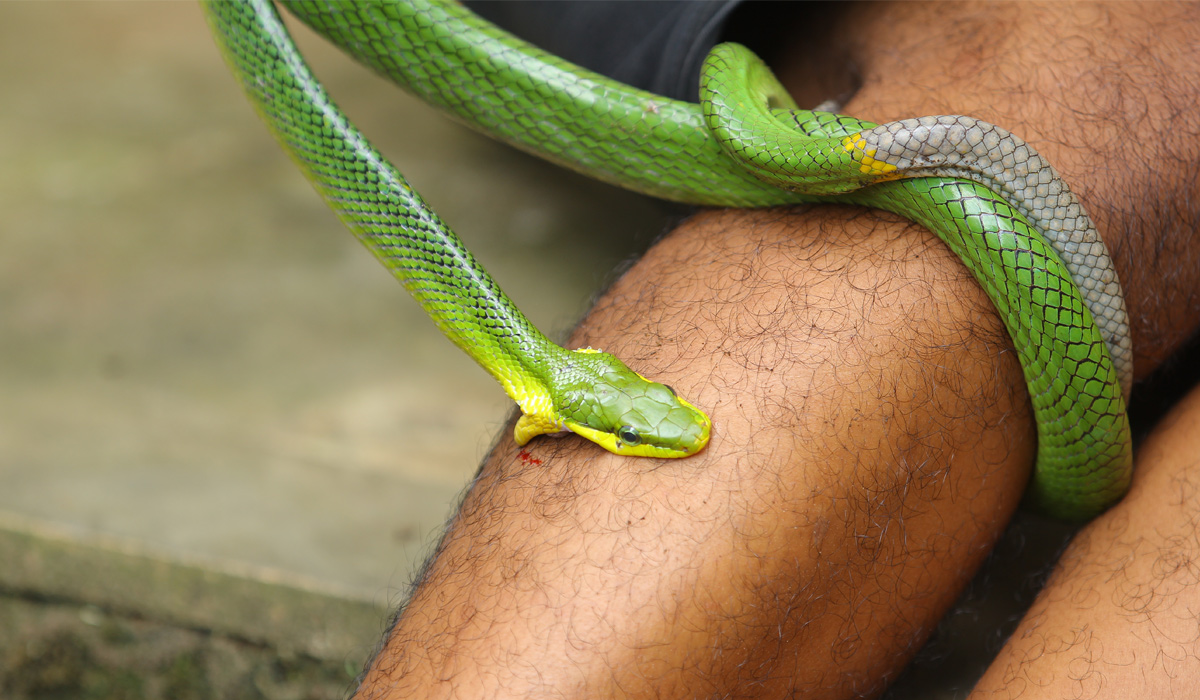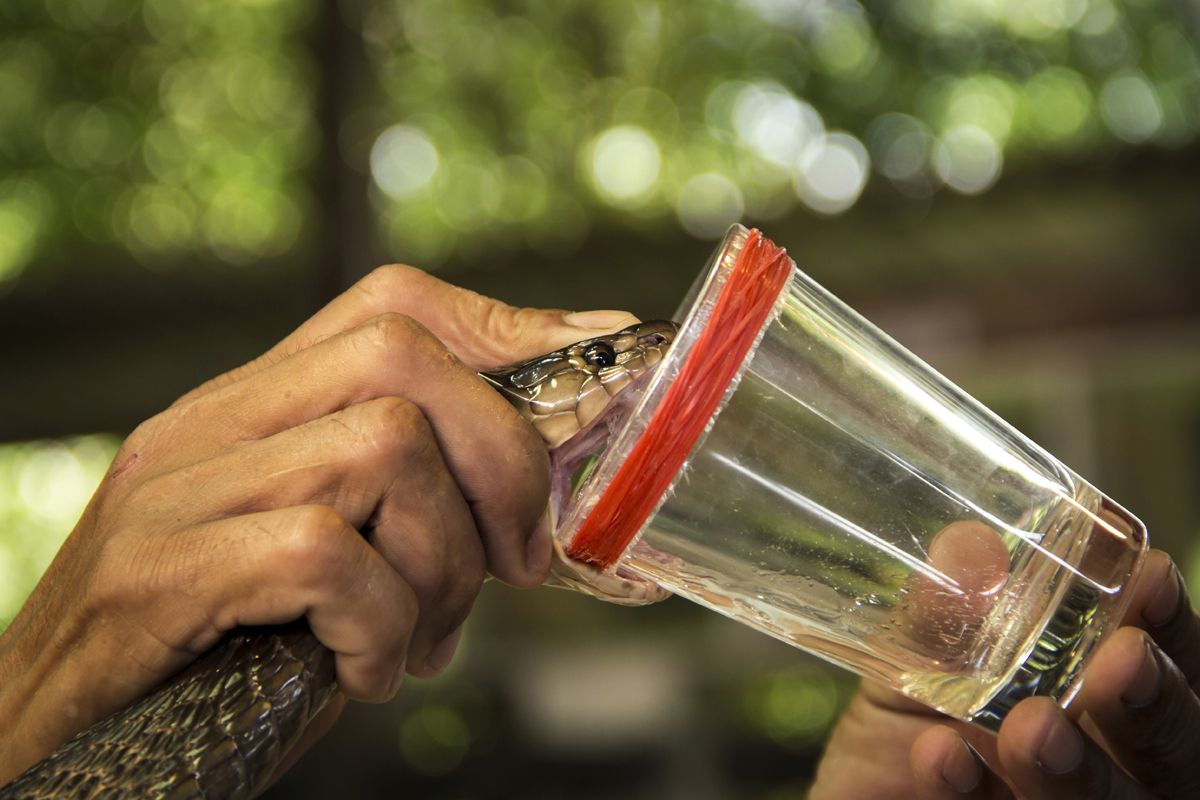Threats from snakebites in developing parts of the world (and backcountry areas of developed nations) might soon be mitigated thanks to recent developments in the manufacturing of synthetic antivenom.
The breakthroughs arrived courtesy of Associate Professor Brian Lohse and his team in the Department of Drug Design and Pharmacology at the University of Copenhagen. The team has discovered a peptide capable of neutralizing the toxins found in the venoms of 75% of venomous snakes. The University of Copenhagen has applied for a national patent on the peptide through a startup company called Serpentides.
Synthetic antivenom would be a major game-changer for anyone from adventurers to field workers.

“…it will fit in your pocket, and it can be used by anyone, anywhere. The idea is that it can be injected using an automatic injection unit, precisely like the ones used by diabetes patients, that is, directly into the muscle or fold of the skin at the site of the bite,” Brian Lohse says in a quote on medicalxpress.com.
The portable, ready-to-use nature of the potential product is what makes it revolutionary, along with its theoretical capability to work on bites from various species of snake.
Current antivenom is based on a laborious process that involves injecting horses and sheep with snake venom and making use of the resulting antibodies. It requires lots of horses, lots of snakes, lots of infrastructure, lots of money, and the resulting product has to be refrigerated and injected intravenously. Furthermore, it often only works on venom from one type of snake (the snake used to create the antibodies) and incurs major medical costs on the recipient.

A quick glance at a map on the World Health Organization website shows that many developing nations, particularly in Africa, don’t have the resources to manufacture local supplies of antivenom in this way. And refrigeration and intravenous injection are often not possible in poverty-stricken areas or deep in the backcountry.
Serpentides’ potential product would solve all those problems in one stroke. As of now, Brian Lohse and his team have published their research and filed for patents. Widespread production is still a ways away, and there’s no word on if the antivenom would be safe to use on dogs–but we can hope!



